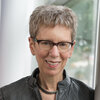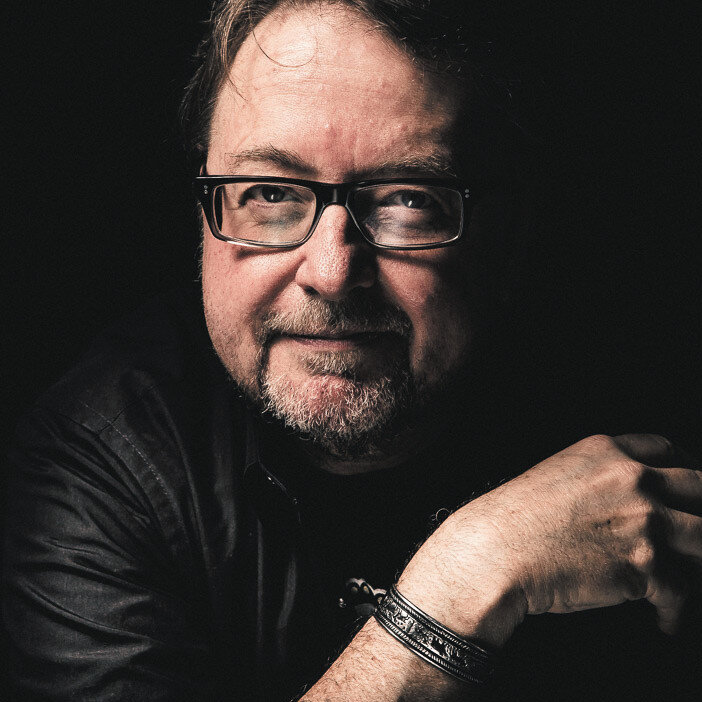Terry Gross (NPR, 3/29/19); Dhr. Seven, Crystal Quintero (eds.), Wisdom Quarterly
Luis Alberto Urrea's The House of Broken Angels borrows from the story of his older brother, who died of cancer. He told Fresh Air in 2018 that the book went through a rewrite after the 2016 election.
Irish-Mexican-American author finds inspiration in family, tragedy, and Trump
 Fresh Air guest University of Illinois, Chicago Distinguished Professor of Writing Luis Alberto Urrea writes what he describes as a literature of witness.
Fresh Air guest University of Illinois, Chicago Distinguished Professor of Writing Luis Alberto Urrea writes what he describes as a literature of witness.He grew up in San Diego, California, but was born in neighboring Tijuana, Mexico, to a Basque-Mexican father and Irish-American mother.
When he was 3 years old, they relocated to California. He grew up in a San Diego barrio. He has family on both sides of the border. This dual culture was the subject of his memoir, Nobody's Son.
He's also written about the period he did relief work in Tijuana with the garbage pickers who survive on what they can find in the mountainous garbage dumps.
He was nominated for a Pulitzer Prize for his 2004 nonfiction book, The Devil's Highway, about a group of 26 Mexican men who crossed the border illegally, guided by smugglers through the Arizona desert, where they were abandoned by the smugglers. More than half the men died in the desert.
Urrea's latest novel, The House of Broken Angels, just came out in paperback. It borrows from the real story of his older brother, Juan, who was dying of cancer when his mother died. After her funeral, the family threw a party for Juan that was part birthday celebration, part wake.
TERRY GROSS: Luis Urrea, welcome to Fresh Air. So did Donald Trump's candidacy, and election, and "build the wall" and "end DACA" [slogans] influence your decision to write this novel or influence the content of it?
 PROF. LUIS ALBERTO URREA: It definitely affected my rewrite of the novel. You know, the novel started out as a kind of a slim memoir inspired by the events of my brother's death and final birthday party on Earth before his death. And it kind of was what I call the Mexican Finnegans Wake, right?
PROF. LUIS ALBERTO URREA: It definitely affected my rewrite of the novel. You know, the novel started out as a kind of a slim memoir inspired by the events of my brother's death and final birthday party on Earth before his death. And it kind of was what I call the Mexican Finnegans Wake, right?
...GROSS: Some of [your mother's] family is from Virginia. Your father was [white, a blond-haired, blue-eyed Basque called a] Mexican, [who] grew up in Mexico...?
PROF. URREA: Yes, yes.
GROSS: So I'm not sure what his ethnic background was. But -- so describe that wall in your own home.
PROF. URREA: The situation was kind of complicated in that my mother didn't speak Spanish [and] was struggling with all her might to make me an American boy. And the other side with all of his might was trying to keep me a Mexican boy. And in my mother's world, I wasn't named Luis, I was named Louis. I was Louis Woodward, one of her people.
And that kind of combat over me was extended into so many other things. You know, the two cultures clashing, the relationship coming apart at the seams but sort of trapped together by my fervent Catholicism.…
GROSS: You must've been pretty confused when you were growing up if your parents were fighting over your identity... So in the conflict between your mother wanting you to be American and your father wanting you to be Mexican, did you, at some point, say to yourself, I'm Mexican-American?
PROF. URREA: (Laughter). I'll be honest with you. So the neighborhood we lived in was full of ethnic violence and strife. And it was a neighborhood where black versus brown versus white and any combination of those, okay?
So if you can imagine me, Irish-looking kid, talking Tijuana with a Mexican accent going to Catholic school, right? walking -- this sounds like a great hard-luck story -- but, you know, it wasn't quite a mile. But it was a pretty long walk through the barrio in my little, silly Catholic school uniform every day. And can you imagine all the homeboys watching this? And I always have this weird fantasy of them all saying, "Gentlemen...
GROSS: (Laughter).
PROF. URREA: Right? "Let us make peace and kick his butt today."
GROSS: (Laughter).
PROF. URREA: ...Which is perhaps what made me a big reader, right? I'd rush home and lock myself in and read. And in fourth grade, a scary event happened, which is melodramatic to talk about. But I escaped some street violence - let's put it that way - and my parents felt that it was time to get out of that ambiance. And my mother had come into a little bit of inheritance money. And we suddenly moved north again. And note the journey -- right? -- heading north.
We went north to a little, essentially, Anglo, working-class suburb -- in other words, to my mother's at least ethnic group, not my father's. And we were the first mixed family in our little neighborhood, which caused a lot of interesting things. But I suddenly, for the first time in my life, heard pretty harsh anti-Mexican rhetoric. And I myself was called greaser, wetback, taco bender -- which was a San Diego specialty. I thought that was a good insult because it was creative, you know, a little bend in the taco. You're so witty.
GROSS: (Laughter).
PROF. URREA: And I had gone - I had joined the Boy Scouts. I was instantly an American kid, and I liked it. I thought, OK, Americans have lawns. That's cool. I had not seen lawns until fifth grade -- big green lawns. More + AUDIO






















































































































































































































































No comments:
Post a Comment